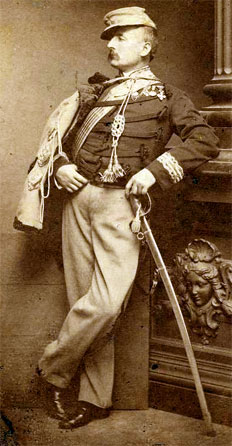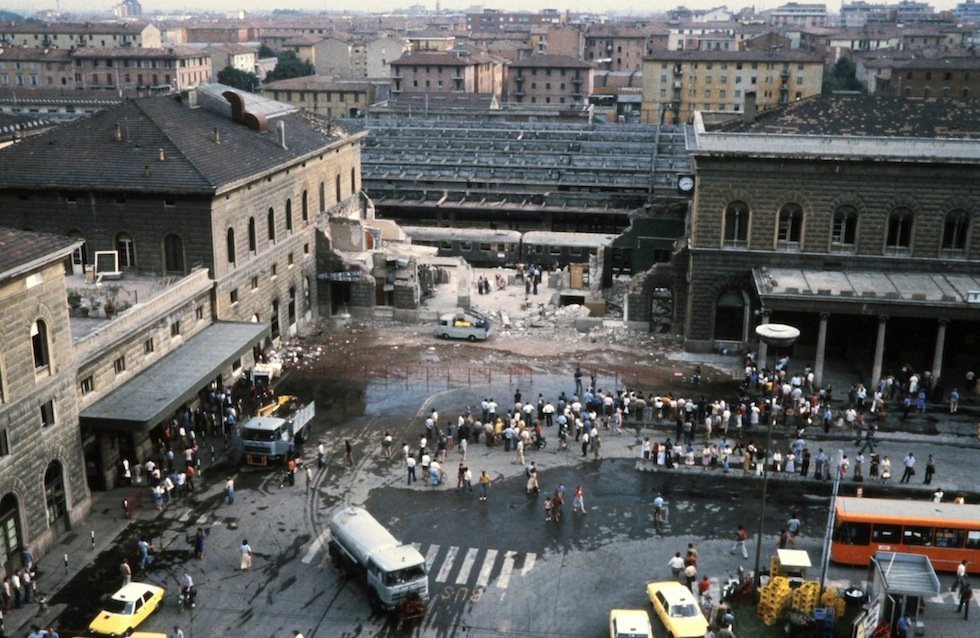
On 2 August 1860 a revolt breaks out in the town of Bronte (Sicily) against the landowning nobility. The uprising is brutally put down on the orders of Garibaldi, self-styled dictator of Sicily.
Thread with special guest appearances by Horatio Nelson and the Brontë sisters >> 1
Thread with special guest appearances by Horatio Nelson and the Brontë sisters >> 1
By the end of July 1860, Giuseppe Garibaldi has conquered Sicily, defeating the forces of the Kingdom of the Two Sicilies, as part of his campaign to unify Italy under the rule of King Victor Emmanuel II. This has brought hope for social justice among the population >> 2
Garibaldi landed in Marsala on 11 May 1860 with 1,089 men, later joined by Sicilian volunteers. Palermo surrendered on 6 June & his conquest was completed when he entered Messina on 27 July. You can read about his expedition in the linked thread >> 3
https://twitter.com/NickWhithorn/status/1257345295144439810?s=19
Support of Sicilian volunteers has been vital to Garibaldi's small army & his success in quickly overthrowing a corrupt & inefficient Bourbon régime has created hopes for redistribution of land, almost completely dominated by large landed estates in the hands of the nobility >> 4
Around Bronte (on western slopes of Etna), the major landowner (15k hectares) is the Duchy of Bronte. In 1799, King Ferdinand III of Sicily (IV of Naples) granted the title to Horatio Nelson for his help in restoring the monarchy & ending the short-lived Republic of Naples >> 5
Nelson was brutal. Admiral Caracciolo of the Neapolitan Royal Navy, who served with Nelson on occasion, threw in his lot with the Republicans. Although he was sentenced to life imprisonment after being tried on board Nelson's ship, Nelson personally ordered he be hanged >> 6 

When Nelson became a national hero in England, it is thought that Patrick Brunty (photo), father of Emily, Charlotte & Anne Brontë, perhaps wanting to change his surname to hide humble origins, chose the name Brontë in order to associate himself with the distinguished figure >> 7 

Nelson himself probably never visited his Dukedom in Bronte and nor did many of his successors to the title. They were largely absentee landowners. In 1860, the title is held by his niece, Charlotte Mary Hood (neé Nelson), 3rd Duchess of Bronte >> 8 

Relations between the Dukedom and the people that work its land are already poor and the popular sentiment aroused by Garibaldi's campaign incites feelings even more. On 2 August 1860, an insurrection is sparked off, possibly with the intervention of outside agitators >> 9
Dozens of houses are set on fire, as well as the Town Hall & theatre. Mobs hunt down anybody in a position of authority. A local Baron is massacred, along with his wife & children, as are the local priest & the notary. A total of 16 people are killed & numerous injured >> 10
This brief & bloody uprising sets off a chain of similar episodes in nearby towns, Randazzo & Biancavilla. Hearing of this, Garibaldi decides to set an example. He proclaimed himself 'Dictator of Sicily' on 14 May 1860 & under these powers sends Nino Bixio (photo) to Bronte >> 11 

Bixio is Garibaldi's right hand man & has orders to be ruthless in putting down the revolt. But why should Garibaldi be so unforgiving of a popular revolt inspired by a longing for social justice? The answer is probably twofold: a general reason & one specific to this case >> 12
Garibaldi does not want instability & social tensions when he has only just taken control of Sicily. He has a small army & needs the support of the ruling class & state apparatus; after all, he is not heading a revolution but just replacing one monarchy with another >> 13
Moreover, Bronte is a British Dukedom & Garibaldi needs to court British support. When he landed in Marsala & during the battle for Palermo, the British Navy remained neutral on the understanding that British economic interests (Marsala wine & sulphur mining) be protected >> 14
Nino Bixio sets off for Bronte on 6 August. Along the way, he encounters terrified people fleeing the revolts in various towns that have led to massacres similar to the one in Bronte, which set off the chain of rebellion. This convinces him even more of the need to be tough >> 15
Bixio arrives in Bronte & sets up a military court. Since the events of 2 August, outside agitators & anyone else involved in events have had plenty of time to leave the town and Bixio's 'investigation' is hurried & superficial, a classic example of summary justice >> 16
A trial lasting just 4 hours sentences 150 people, many of whom are tortured to obtain confessions, to heavy prison terms or, for five defendants, death by firing squad. The executions are carried out at dawn on 10 August in the Piazza outside the Monastery of Santo Vito >> 17
One of the five people executed is Nicolò Lombardo, a lawyer who was acclaimed as Mayor following the revolt and, thus, considered by the court to be the ringleader. Later research proves that, in reality, he was innocent & took no direct part in the events >> 18
The other men executed are Nunzio Longi Longhitano, Nunzio Nunno Spitaleri, Nunzio Samperi & Nunzio Ciraldo Fraiunco (Nunzio was obviously a popular name in Bronte!). Of these, it is certain that Fraiunco was innocent, probably suffering from a form of dementia >> 19
Indeed, when the soldiers of the firing squad execute the men, none of them has the courage to aim at Fraiunco, who they know did nothing during the revolt other than parade around the town playing a tin trumpet, caught up in the general excitement >> 20
Unharmed, the poor man falls to his knees, crying & thanking the Virgin Mary for the miracle of saving his life. He has not reckoned, however, with the ruthlessness of Nino Bixio, who strides up and, ignoring his pleas for mercy, kills him with a single shot to the head // 21
• • •
Missing some Tweet in this thread? You can try to
force a refresh











